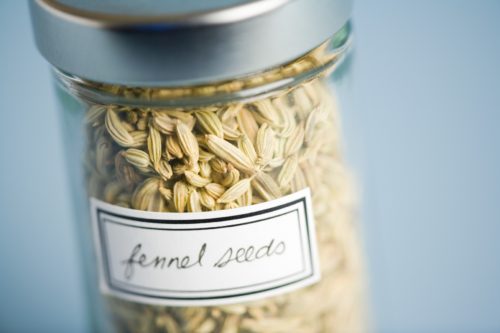10 foods that fight colds
There’s still no cure for the common cold, but there are foods you can eat to give your body the edge it needs to fight off infection. You may know about chicken soup, but there are more options. Load up on the nutrition that builds your immune system and acts as a shield against colds and flu.
- Fennel, a natural expectorant, can help clear chest congestion and soothe a persistent cough. Fennel can be eaten raw or roasted, but you for best cold-fighting results make a tea from fennel seeds: 1.5 teaspoons of fennel seeds and one cup boiling water. Steep for 15 minutes, strain and sweeten with honey.
- Licorice-flavored anise seeds have antibacterial properties shown to ease coughing and help clear congestion. Anise seeds can be baked in breads and cookies, but for to keep colds at bay, add one cup of crushed anise seeds to one cup of hot water, and flavor with sugar, garlic, cinnamon or honey. Sip this tea up to three times a day.
- Omega-3-rich oily fish—mackerel, salmon and tuna—help reduce inflammation in your body. Chronic inflammation keeps your immune system from working properly can contributes to colds and flu (along with more serious diseases, such as heart disease).
- Recent research suggests vitamin C may not prevent colds, as once thought. But taking the vitamin at the first sign of illness may reduce a cold’s duration by about a day. So be sure to include lots of citrus—grapefruits, lemons limes and oranges—in your diet.
- Zinc has a strong track record of fighting colds. Studies show taking zinc lozenges appears to shorten the duration of cold symptoms in adults. But you can also get zinc from your diet; oysters contain more of the nutrient per serving than any other food. Just skip the raw version. Uncooked shellfish could contain harmful bacteria that can make you sick in other ways.
- Garlic does more than spice up your food. These fragrant cloves contain allicin, a compound that produces potent antioxidants when it decomposes. One study found that people who took garlic supplements for 12 weeks between November and February got fewer colds than those who took a placebo. Note that you’ll get the biggest antioxidant boost from raw garlic.
- Brazil nuts are high in protein, healthy fats and selenium—a mineral that’s essential for proper immune function and may help guard against infections and flu. You only need a small amount of selenium (getting too much cold raise your risk for certain diseases). And one Brazil nut contains more than a day’s recommended value of the mineral, so go easy on these treats.
- That old saying, “the darker the berry, the sweeter the juice” holds true when it comes to leafy greens. The darker the greens, the higher the nutrient content. So when preparing your immune system for sniffles season, choose arugula instead of iceberg lettuce. Greens like arugula may help relieve chest congestion, runny nose and coughs.
- Oats contain a type of fiber called beta-glucan, known for its cholesterol-lowering and immune-boosting properties. Animal studies show beta-glucan from oats helps prevent upper respiratory tract infection. This is true whether you get your oats from a bowl of oatmeal or from a snack bar made from oat grain.
- Sunflower seeds are excellent sources of vitamin E, an antioxidant that protects cell walls from damage. A study from Scotland found that people who ate diets high in vitamins C and E produced less phlegm. But a single one-ounce serving is plenty; it contains 30 percent of your recommended daily intake. For a healthier choice, opt for dry-roasted seeds over those roasted in oil.






